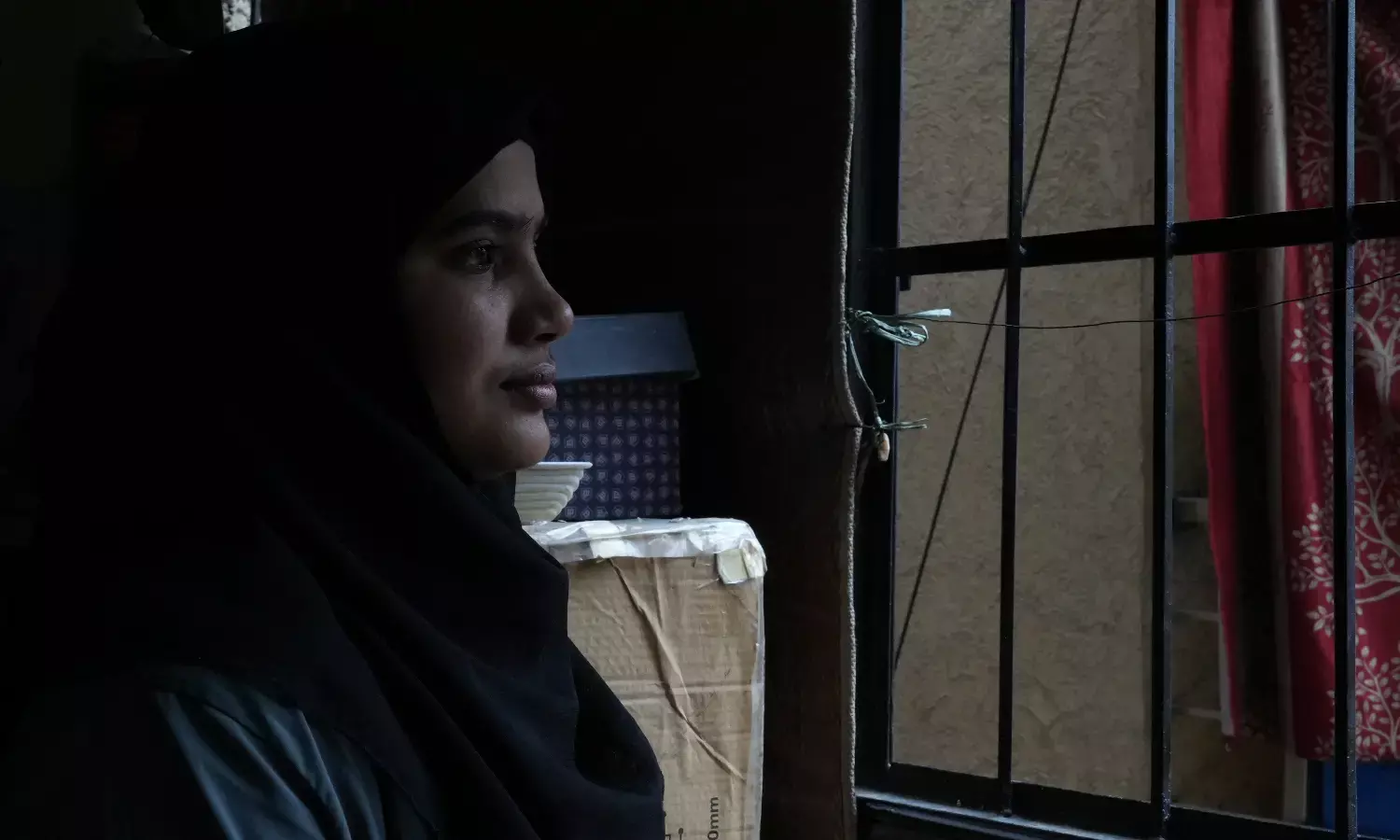Education Is ‘Freedom’
Tasmida Johar is the first Rohingya woman to graduate in India

Tasmida, 26, has faced more challenges than most university students do, she persevered, and earned her freedom as she became India's first female Rohingya graduate in December 2022. Tasmida holds a B.A. degree from Delhi University's open university.
Tasmida Johar is grateful that she was able to study despite the odds, but she wishes that other women in her community could do the same. “It saddens me that I am the first to do so when so many Rohingya women wanted to come to this position but were unable to study," Johar said.
Her parents were forced to change her name, she was born in Myanmar as Tasmin Fatima. Her parents changed her name because she couldn’t go to school and avail of education if she didn’t have a Buddhist name. She had been displaced twice.
Her father, Amanullah Johar, ran a fruits and vegetables export and sales business in Myanmar. He was frequently detained, and was only released after the police allegedly demanded money from him.
Tasmida Johar claimed that in Myanmar if the authorities discovered that a Rohingya owned a business, they would be attacked and jailed. “If you got first place in Burma schools, they didn't give the prize if you weren’t a Buddhist," she recalled, still referring to Myanmar's previous name before it was changed in 1989.
"Roll numbers were first assigned to Buddhist children, then to us. We were not permitted to speak loudly and were always seated at the back of the class. "We were not allowed to wear scarves (hijab) in school," added Johar.
As a Rohingya refugee from Myanmar she fled to neighbouring Bangladesh Cox's Bazar, which houses the world's largest refugee camp, and then to India to pursue her dream of getting a good education. She keeps her family's circumstances, and the belief that education is a one-way ticket to freedom, close to her heart.
Johar had studied until the third grade in Myanmar, but she had to start from the beginning again. However, as she assimilated into new cultures, began learning Bengali, Urdu, and English in addition to the Rohingya and Burmese she already knew. She would later learn Hindi in India.
The family decided to relocate to India, first to Haryana, but there they were unable to obtain adequate education. “We came to the national capital and settled in the Kalindi Kunj camp in southeast Delhi. I want to highlight my community's fears as we went about their daily lives in India, “ Johar said.
However, their struggle did not end there. Without valid Indian documents, she was not permitted to attend any government schools. “I had hoped to attend a government school, but that did not work out. It was virtually impossible." Johar explained.
Nearly 20,000 Rohingya are registered as refugees with the UN in India, with some arriving before 2017. More than a thousand of them live on New Delhi's outskirts.
"Rohingya refugees fear that if they send their daughters outside to study, the government will come and pick them up. What if they're abducted, raped, or sold? This is a memory of what happened in Burma. As a result, they are constantly worried about their children,” Johar said that such comments were common, but the attitude shifted when her academic success became visible.
After completing high school with the assistance of the German government's Albert Einstein German Academic Refugee Initiative, Johar was accepted into an online bachelor's programme to study political science at Delhi University in 2019. She graduated in December 2022, at the age of 25. "Normally, you complete your graduation by the age of 21, but in my case, it took four extra years due to periodic displacement and uncertainties," Johar explained.
“People from my community saw the headlines and realised they can also be visible. There was a little shift in their mindset and suddenly I started getting comments like ‘we knew she could do this and our daughter will also become like you.” she added.
Her mother thinks that she should study further and work for her community. “Refugees like us don’t have anything to pass on to our children. The only thing we can give them is education. She should be the voice of all the vulnerable and oppressed women and children who cannot raise their own voices,” her mother Khatoon said.
Johar is among 25 refugee students selected by the UNHCR-Duolingo programme to help disadvantaged and academically bright individuals pursue higher studies. She is waiting for an acceptance letter from Wilfrid Laurier University in Canada.
Johar says she wants to become a human rights activist in the future. She wants to fight for the rights to education, and health of the oppressed women, and raise her voice against the trafficking of young girls. “My dream is to go to the International Court of Justice and tell them about the plight of Rohingya refugees. It is only befitting that a Rohingya takes the microphone and speaks the truth as we are being wiped from many privileged spaces and stories,” she said.
All Photographs Farheen Saifi.


